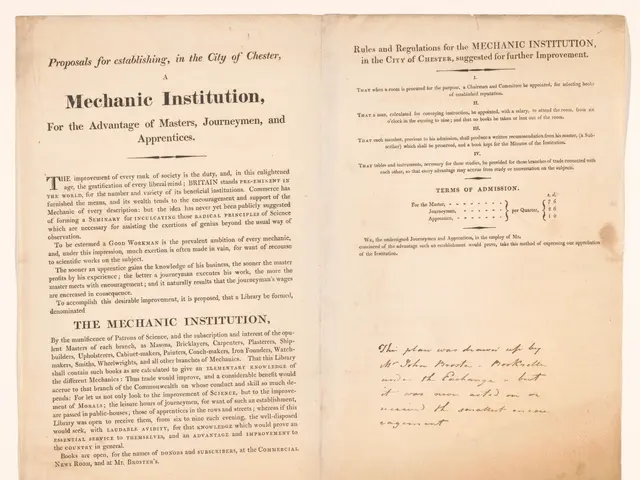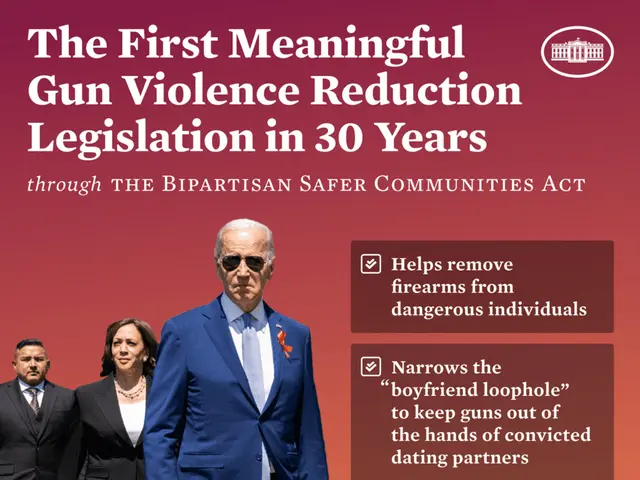Multiple Reports Suggest Additional Instances at Potsdam's Oberlin House
A caregiver, Esther K., is standing trial at Potsdam's local court for allegedly inflicting violence on multiple disabled adults residing at the Eckard-Beyer-Haus, a residential facility run by the Oberlinhaus, a leading social care provider in Germany. The Oberlinhaus, with a workforce of over 2,200, has committed to providing care, companionship, and treatment to individuals with a range of disabilities for over 150 years.
In eight separate incidents since October 2023, Esther K. has been accused of assault, threatening, and demonstrating power over her clients. A particularly serious allegation involves a deaf-blind man with Parkinson's who was taking a bath. K. is alleged to have hit and screamed at the man when he failed to comply with her demands to leave the tub, leading the man to bite and hit himself out of distress.
On another occasion, an incident occurred in October 2023 when a non-verbal individual with autism is said to have taken food from the kitchen before dinner. K. allegedly insulted, pushed, and locked the individual in their room, also withholding their meal.
Esther K. acknowledges that there were physical altercations in all eight cases and admits to raising her voice, but denies the more violent charges. She claims that the echo in the bathroom amplified her voice and that a bath lift was not available to lift the Parkinson's patient easily. She maintains that she only wanted to help the deaf-blind man by guiding food to his mouth during dinner. In response to the allegations regarding the autistic man, K. denies hitting him and claims that the individual enjoyed eating and was making a mess.
A 22-year-old caregiver, serving as a witness, expressed shock at hearing K.'s screams during the incident with the deaf-blind man, emphasizing that such actions should not be dismissed as impulsive. K. is also alleged to have used offensive language towards the autistic man.
The trainee caregiver states that members of staff are there to assist and accompany people, not to act as part of an institution that condones violence. When asked about the delay in reporting the incidents, the trainee expressed that she was in shock and, if given another opportunity, would report them immediately.
Tensions are high among activist groups, who question the judge's handling of the trial. The activists argue that the judge underplays the import of the insults, stating, "People can't hear that." The court case follows a similar tragedy in 2021, when another caregiver murdered four disabled individuals at the Potsdam Oberlinhaus, raising concerns about the treatment of disabled persons in care facilities.
The activist group advocating against ableism demands that the acts committed be recognized as structural violence, highlighting that one does not kill others simply due to being overloaded but because they consider the lives of disabled people as worthless. The group's stance is that ableism disvalues the lives of disabled people and should be acknowledged as a factor in cases like this one.
According to some observers who have followed the trial, the court proceedings have been challenging. Criticisms include the judge's ostensible downplaying of K.'s insults and derogatory language and the lack of focusing on the societal factors responsible for the strain on care facilities. Some critics argue that the expression "suffers from" to describe the sensory impairments or developmental disorders of the clients is an outdated and derogatory term, and that societal factor such as ableism should be considered in this case.
- Esther K., the caregiver standing trial, is accused of inflicting violence on multiple disabled adults residing at the Eckard-Beyer-Haus.
- The Oberlinhaus, a leading social care provider, aims to provide care, companionship, and treatment for over 150 years.
- In eight separate incidents since October 2023, Esther K. has been accused of assault, threatening, and demonstrating power.
- A particular allegation involves a deaf-blind man with Parkinson's who was taking a bath, where K. allegedly hit and screamed at him.
- Esther K. acknowledges physical altercations and admits to raising her voice, but denies more violent charges.
- The trial brings attention to mental-health issues, therapies-and-treatments, and the importance of workplace-wellness in the care industry.
- In another incident, an individual with autism was allegedly insulted, pushed, and locked in their room, also withholding their meal.
- This trial follows a similar tragedy in 2021, where another caregiver murdered four disabled individuals at the Potsdam Oberlinhaus.
- Activist groups question the judge's handling of the trial, focusing on the insults and derogatory language used by Esther K.
- Some critics argue for the acknowledgment of societal factors, like ableism, in cases like this one, as ableism disvalues the lives of disabled people.
- A 22-year-old caregiver, serving as a witness, emphasizes the importance of mindfulness, compassion, and self-development in the care industry.
- Modern caregivers are expected to prioritize health-and-wellness, fitness-and-exercise, and nutrition for their clients.
- Skin care should also be considered, as many disabled individuals may have heightened skin sensitivity.
- The court case, entangled with politics, policy-and-legislation, and crime-and-justice, sheds light on the need for awareness and education about disability-related matters. For instance, regulators should call for changes in car-accident laws to better protect disabled individuals and ensure their rights in job-search, career-development, and general-news reporting. Pop-culture and entertainment may also play a role in dispelling misconceptions about disabilities, stressing the importance of empathy and understanding.








